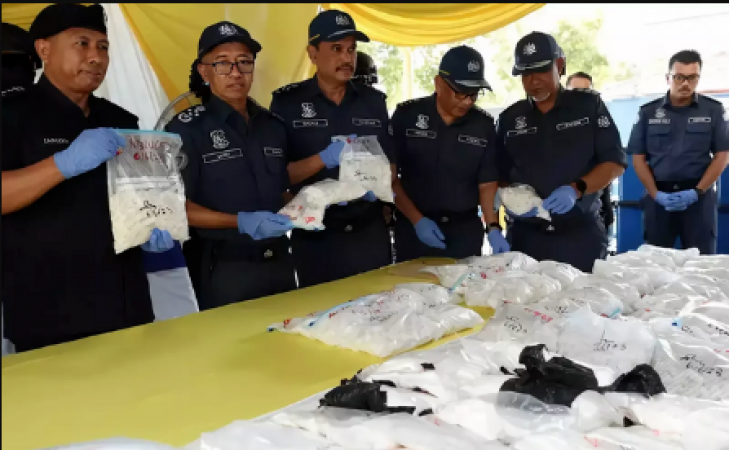
Kuala Lumpur: On Wednesday, Malaysian authorities commended Saudi Arabia's drug enforcement agency for providing information that resulted in the seizure of 302 kg of cocaine.
The drug shipment, which was hidden inside bags labelled as soybeans and was worth an estimated $13.1 million, was taken last week from a shipping container at Port Klang in the Selangor state.
The shipment was headed for South Asia and had its origins in South America.
Also Read: Earthquake in the Philippines with a magnitude of 6.2
According to Director General Zazuli Johan of the Royal Malaysian Customs Department, the drug bust was made possible by information gathered by the Saudi Ministry of Interior's General Directorate of Narcotics Control and its surveillance of criminal networks that traffic in drugs.
Also Read: Three Kosovo police officers are detained by Serbian security forces, a Kosovo official reports
The massive operation's success, according to Superintendent Muhammad Shafuan Md. Zan of the Malaysian Customs Department, was made possible by the Saudi government. He added that this was not the first time the Kingdom had assisted Malaysia in a significant drug bust.
"The customs department is appreciative of the tipoff shared by our Saudi counterpart regarding the recent drug bust because the scale (of the drug bust) is big and the value is worth millions (of dollars)," he said in an interview with Arab News.
"Not just with customs, but also with the police, we have a very close relationship with the Saudis. Saudi Arabia and Malaysia have been collaborating on cases like these.
Also Read: German funding for the purchase of an Israeli air defence systemb
According to data from the Global Initiative Against Transnational Organised Crime, Malaysia is a key transit country for cocaine, which is typically smuggled via shipping containers, and a major hub for the illicit drug trade by transnational criminal networks.
In 2021, Malaysian law enforcement prevented large-scale drug trafficking attempts involving 94.8 million Captagon pills worth $1.3 billion and 3.9 million amphetamine pills worth $54 million by working closely with the Saudi General Directorate of Narcotics Control.